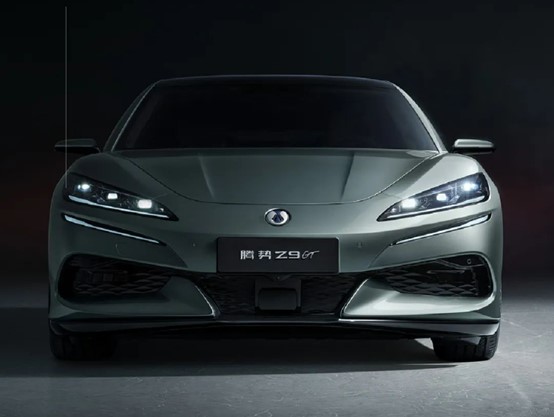The U.S. Department of Energy (DOE) announced on September 20th that it has allocated over $3 billion for 25 projects across 14 states to enhance the nation's battery manufacturing capabilities.
This investment is part of the Biden-Harris Administration's “Investing in America” agenda, aimed at boosting domestic production of advanced batteries and materials, supporting compliance with U.S. electric vehicle (EV) tax credit rules, and reducing reliance on China's battery industry supply chain. These government-subsidized projects are expected to create more than 8,000 construction jobs and over 4,000 operational jobs.

Photo from Power Technology
Following the first round of the Battery Materials Processing and Battery Manufacturing and Recycling Program, which allocated $1.82 billion to 14 projects, this is the second round of government funding support. The projects are managed by the MESC (Office of Manufacturing and Energy Supply Chains) and involve retrofitting, expanding, and constructing new domestic facilities for processing critical minerals, manufacturing battery components, and recycling.
The projects cover key segments of the lithium battery supply chain, including the extraction and recycling of critical minerals such as lithium, graphite, and manganese, as well as the manufacturing of essential components like electrolyte salts, solid-state electrolytes, polymer separators, cathode, and anode materials. The selected projects include a diverse portfolio of battery technologies, encompassing traditional lithium-ion batteries, next-generation lithium-ion chemistries, and non-lithium-ion technologies.
Through these initiatives, the Investing in America agenda is poised to drive a total investment of $16 billion.
The DOE has allocated $166 million to South32 Hermosa in Patagonia, Arizona, for the mining of high-purity manganese sulfate monohydrate (HPMSM), and $166.1 million for Element 25’s HPMSM project in Louisiana as well.
Other potential grant projects include:
Battery Production
EnerSys Advanced Systems is expected to receive over $199 million for the construction of a 5 GWh battery cell manufacturing plant in Piedmont, South Carolina, with an expected start date in 2028.
Forge Battery has applied for $100 million to produce high-performance 2170 lithium-ion cylindrical cells for heavy-duty trucks, off-road vehicles, aerospace applications, and high-performance electrification of national defense in a new North Carolina factory with a planned annual capacity of 3 GWh.
Form Energy is proposing a $150 million grant to repurpose a steel mill in Weirton, West Virginia, and build a 20 GWh production line for 100-hour iron-air batteries by 2027 for battery energy storage systems.
Battery Materials and Components
Li Industries, Inc. has applied for $55.2 million to retool a manufacturing facility in Kettering, Ohio, to build a 10,000-ton lithium iron phosphate (LFP) cathode active material direct recycling and production plant, aiming to provide 5 GWh of domestic LFP cathode material manufacturing capacity. The project is also supported by General Motors.
Mitra Future Technologies Inc is applying for $100 million in government funding to manufacture lithium iron phosphate (LFP) and lithium manganese iron phosphate (LMFP) cathode materials at a plant in Muskegon, Michigan. The company aims to double LFP production capacity to 15,000 tons per year by 2027 and double it again to 30,000 tons after project completion.
SKI US, Inc is seeking $150 million to build a 25,000-ton synthetic graphite production site in Orangeburg, South Carolina.
Urbix is expected to receive $124.6 million to build a 10,000-ton coated spherical purified graphite (CSPG) processing plant in Muscle Shoals, Alabama.
Braskem America Inc. is expected to receive $50 million to retrofit and expand its La Porte, Texas, facility to produce ultra-high molecular weight polyethylene for battery separators.
Cabot Corporation's Van Buren Township, Wayne County, Michigan, plant has applied for $50 million to produce about 1,000 tons of battery-grade carbon nanotubes and up to 12,000 tons of conductive additive dispersions per year for connecting active materials in battery electrodes.
The Dow Chemical Company has applied for $100 million to demonstrate the manufacture of battery-grade carbonate solvents from waste CO2 at a Gulf Coast site.
Albemarle US Inc is expected to receive $67 million to retrofit a North Carolina manufacturing site to produce 50 metric tons (MT) per year of lithium metal anode (LMA) material.
Group 14 has applied for $200 million to expand its SCC55™ patented silicon-based anode material production and plans to build a silane gas manufacturing plant required for the production of silicon anode material in Moses Lake, Washington.
Battery Recycling
American Battery Technology Company (ABTC) will receive $150 million to build a 100,000-ton lithium-ion battery recycling plant in South Carolina.
Ascend Elements Inc has applied for $125 million in government funding to build a new battery-grade graphite recycling facility in Hopkinsville, Kentucky.
Blue Whale Materials LLC is expected to receive $55 million to expand its Bartlesville, Oklahoma, recycling plant, increasing the production of its "black mass" precursor material from the current annual capacity of 14,000 tons to 50,000 tons.
Other potential funded projects include: SWA Lithium LLC's 45,000-ton battery-grade lithium carbonate project, TerraVolta Resources' 25,000-ton battery-grade lithium carbonate project, Solid Power's all-solid-state sulfide solid electrolyte project in Colorado, Revex Technologies' 21,250-ton/year nickel processing and 16,000-ton/year black mass recycling project, NanoGraf's silicon oxide anode material project, Honeywell's lithium salt electrolyte LiFSI – LiN(SO2F)2 project, Clarios Circular Solutions' 20,000-ton/year recycled cathode material project, and Cirba Solutions' 60,000-ton/year battery recycling project.

John Podesta, Senior Advisor to President Biden for International Climate Policy, said that the Biden-Harris Administration is using every available tool to onshore and friend-shore the supply chain for EVs and batteries, working with U.S. allies and partners for the benefit of U.S. national security, economy, and planet. "Today's battery manufacturing grants from DOE will boost America's manufacturing base, create good-paying union jobs all over the country, and help tackle the climate crisis."
The Biden Administration has been promoting the domestic battery industry, with the DOE announcing just last month a $63 million fund to help state and local governments expand battery recycling and make technologies such as advanced sensors and modeling more accessible to small and medium-sized manufacturers (SMMs).







